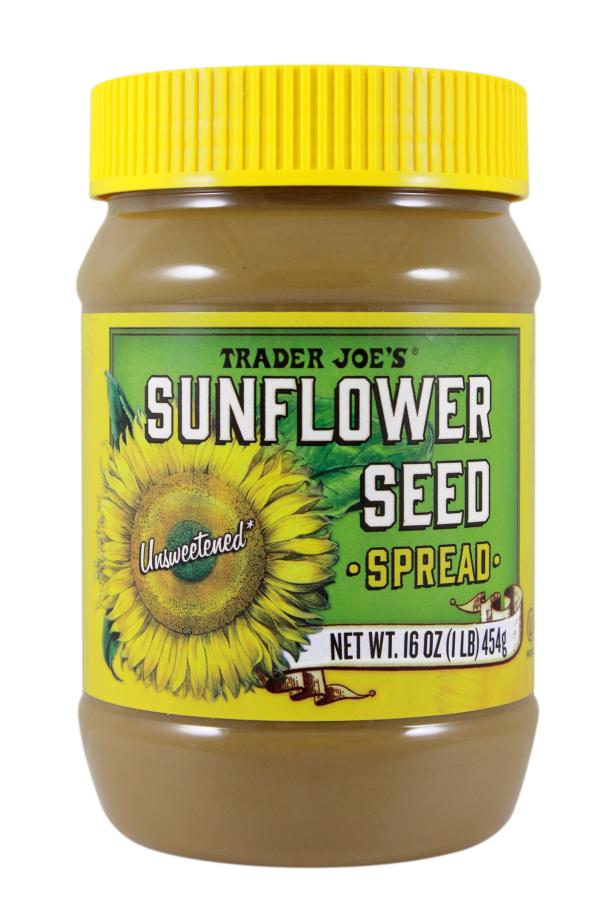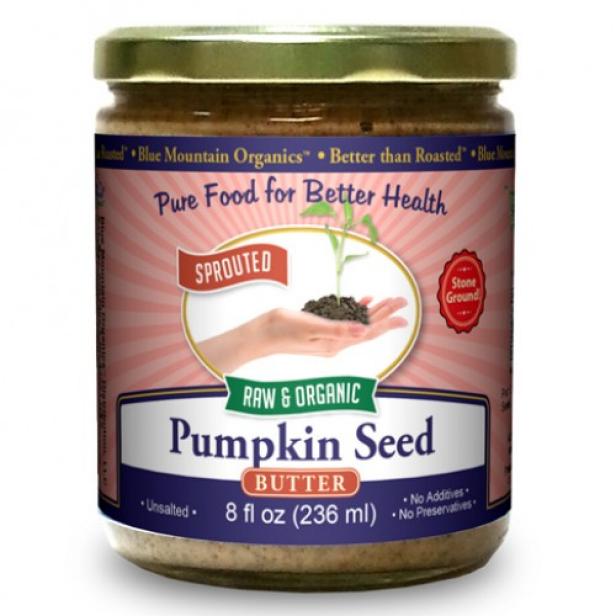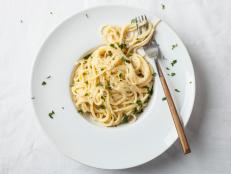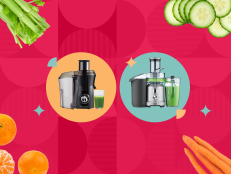What Are Seed Butters and Are They Healthy?
It's not all about the almond butter anymore.

Alpaksoy/Getty Images
For the last few years, almond butter seemed to be the gold standard for spreadable nut butter. But with nut allergies on more people's radar, seeds are getting hotter in 2019, and now seed butters are gaining popularity. Seed butters have a similar taste and consistency to nut butters and are a good fit for those with nut allergies or any of the top allergens. While they're not an exact substitute in terms of taste or nutrition for nut butter, seed butters do have a lot to offer in terms of nutrients and flavor. Here are six kinds you can start with.
Sunflower Butter
Made from roasted sunflower seeds, sunflower butter contains about 100 calories per tablespoon, 16 grams of fat and 7 grams of protein. It also provides 45% the daily recommended amount of the antioxidant vitamin E, 35% the daily recommended amount of manganese, 25% the daily recommended amount of magnesium, and 15% the daily recommended amount of zinc.
Pumpkin Seed Butter
Pumpkin seed butter can be made from raw pumpkin seeds or roasted pumpkin seeds. Some varieties may have added sugar and oil, so you'll want to check the ingredient label if you're looking for pumpkin seeds solo. Two tablespoons of roasted pumpkin seed butter provides 190 calories, 17 grams of fat and 8 grams of protein. It’s also an excellent source of manganese and magnesium providing 60% and 40% of the recommended daily amount, respectively. It’s also a good source of vitamin E and iron.
Hemp Seed Butter
With the rise in popularity of hemp seed (aka hemp hearts), you can now find some stores carrying hemp seed butter. About 2 tablespoons provides 180 calories, 15 grams of fat and 11 grams of protein. It’s also a good source of iron, providing 16% of the recommended daily dose. They also contain nutrients like niacin, copper, manganese, phosphorus and zinc.
Sesame Butter
Sesame seed butter, also known as tahini, is made from unroasted or roasted sesame seeds and is now more popular than ever! You can find it made from regular white sesame seeds or black sesame seeds. It's commonly used in hummus, but is now making its way into other dishes like chocolate chip cookies and banana bread. Two tablespoons of sesame seed butter provides 190 calories, 17 grams of fat and 8 grams of protein. It also contains 15% of the daily recommended amount if iron.
Watermelon Seed Butter
Look carefully and you can find watermelon seed butter sold online. (No, you don't have to worry about the old wives' tale about eating watermelon seeds!) This butter tastes like a combination of cashew butter and sesame seeds. Two tablespoons provides 156 calories, 13 grams of fat and 8 grams of protein. It also provides 11% of the recommended amount of iron, along with zinc, B-vitamins, magnesium and the antioxidant lycopene (the one found in cooked or processed tomatoes).
Mixed Seed Butters
If you poke around online or at your specialty food store you can also find combination seed butters. Although there are no solo chia seed butters as of yet, they do come in this combination form. Of course, the wider variety of seeds in the butter, the more variety of nutrients will be in there.
Toby Amidor, MS, RD, CDN, is a registered dietitian and consultant who specializes in food safety and culinary nutrition. She is the author of The Greek Yogurt Kitchen: More Than 130 Delicious, Healthy Recipes for Every Meal of the Day.
*This article was written and/or reviewed by an independent registered dietitian nutritionist.
Related Content:













































